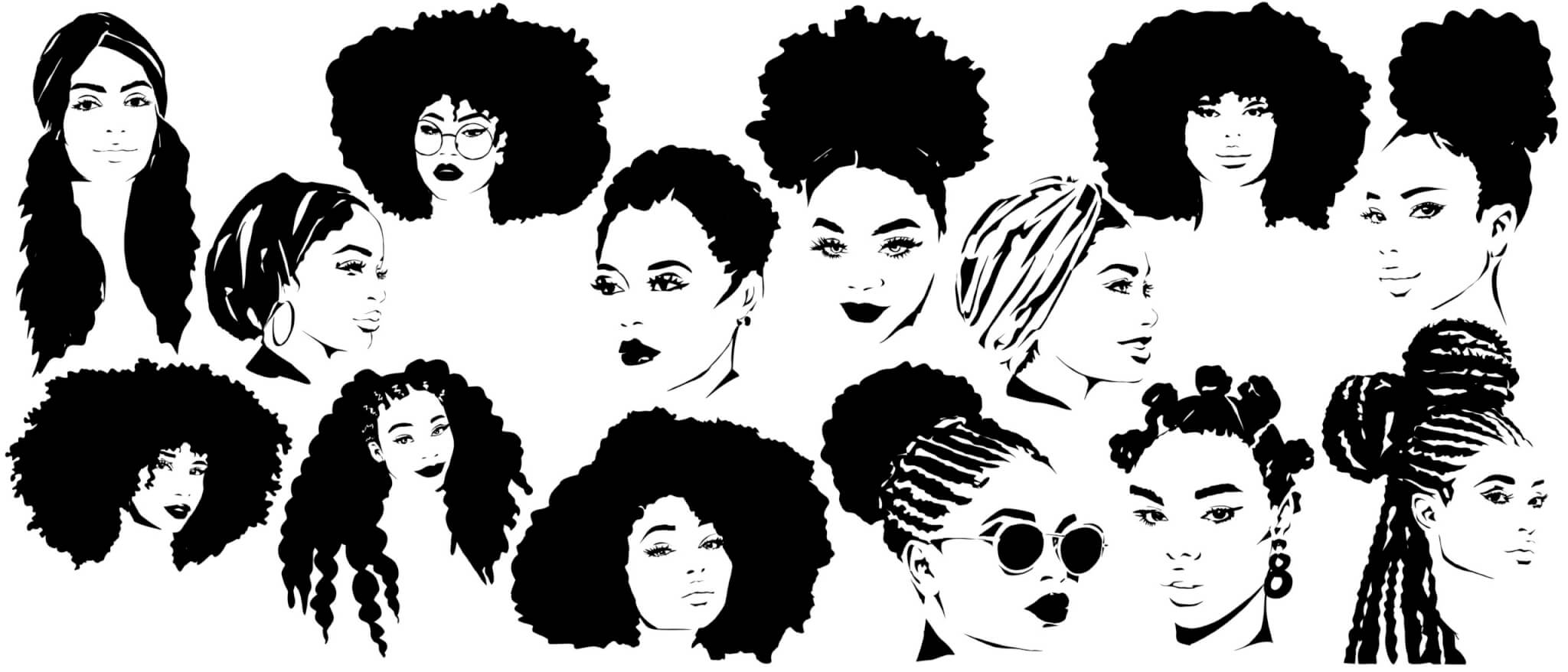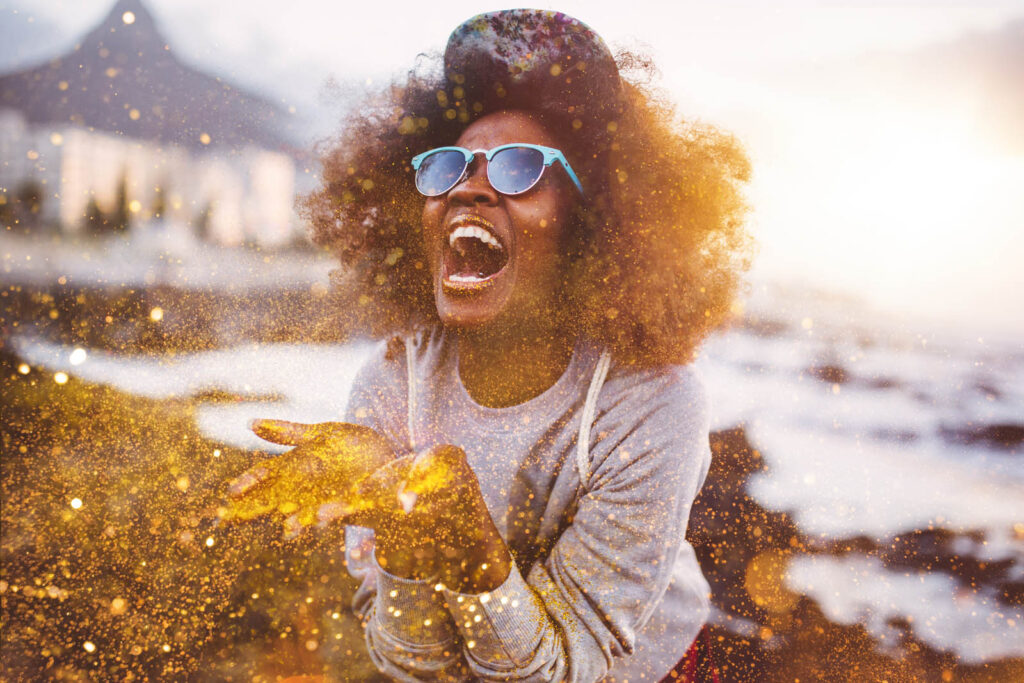
Black History Month Spotlight: #BlackGirlMagic – The Legacy of Black Women and Why Marketers Should Care
Filed Under: Black / African American
Ashleigh Williams
Senior Director, In-Person Qualitative Research
While reflecting on the contributions of African Americans to our culture and history, I found myself also thinking about the momentum of the women’s movement. This past year has really brought women into the spotlight. Women from all walks of life showed courage and established a solidarity in sisterhood through vehicles like the Women’s March and the #metoo movement. Collectively, women brought issues to the forefront that have long been on the back burner. Black/African American women are both in the forefront and the background with other brave women who have contributed to the revelation and discussions of the most sensitive topics, with the goal of pushing progress forward.
A Black Girl Power Renaissance
Recently, Black/African American women have experienced a sort of Renaissance within their communities as well as on the global and national stages where Black culture has been at the forefront of influence. This resurgence has sparked a renewed sense of pride with generations of Black women. Many would say this new confidence and time of celebration began with the election of former President Barack Obama, whose wife, Michelle Obama, presented a strong, elegant portrait of what it means to be a Black woman in America, greatly contrasting negative stereotypes that have historically plagued this group of women.
During President Obama’s tenure in 2006, Beverly Bond established a special awards celebration for Black women called Black Girls Rock. Airing each year on BET syndicated television, this awards program was created to celebrate Black women of all ages who are spearheading social change and making contributions to Black culture. The show filled a void for young Black girls who longed for positive representation and inspiration in all societal facets of their lives. Additionally, Black Girl Inc. (founders of Black Girls Rock) spearheaded a women’s mentoring program/camp to help pass on confidence and to inspire activism among younger generations. In the same vein, “Black Girl Magic” is a viral social media movement that was popularized in 2013 to empower young Black girls, celebrate their beauty and resilience, and to counteract the negativity society places on women within this community. Harnessing the power of social media, this movement highlights women who have contributed to or accomplished much in their respective fields. Yet, this revolutionary mindset hasn’t stopped there.
Spearheading + Advocating for Social Change
Black women have been founders of some of the major social movements of our time. As mentioned in C+R’s blog about #metoo, Tarana Burke founded this movement to bring awareness to sexual assault and violence, specifically within the Black community; the movement eventually transcended race, gender, or age. Another organization, Black Lives Matter, was founded by three Black women to raise awareness about the violence toward Black males in the US. This organization was formed in response to the acquittal of George Zimmerman in the Travyon Martin murder case.
And, in Alabama, Black women have come together to exercise their voting power and were recognized as single-handedly “saving America” from Roy Moore, a controversial candidate who was accused of sexually assaulting minors. According to news reports, Black women made up 98% of the voter turnout. Pollsters now estimate that Black women might play a critical role in the November elections this year as well.
These recent social and political movements build on a legacy of Black women using their voices to instill change for Civil Rights for the Black community and all Americans. Black women from the 60s and 70s, like…
- Shirley Chisholm, the first Black woman to be elected to the US Congress and to run for President,
- Rosa Parks, considered the first lady of civil rights and the mother of the Freedom Movement, she sparked the Montgomery (Alabama) Bus Boycott by refusing to surrender her bus seat to a White passenger, and
- Coretta Scott King, the wife of Rev. Dr. Martin Luther King Jr., was a civil rights leader, advocating for equality for African Americans.
These women were the pioneers in the fight for civil equality and prominent figures of inspiration for the Black community.

Black Female Buying Power
Black women are not only making their voices heard in the social and politics arenas, they are also using their checkbooks to exercise their buying power. Nielsen reports that 60% of Black women agree they are more likely to purchase brands that support a cause they care about. Black women choose to invest their time and money in brands that really “get” their struggle, their values, and accurately depict their daily lives the same as they see it themselves (and not how society views it).
Singer, songwriter, Rihanna “gets” it. Rihanna listened to women of color about what they’ve been voicing to companies for decades, “I want products that show the spectrum of my community.” She capitalized on an unmet need by launching her line of foundations and powders in 30+ shades/colors representing all skin tones rather than just the common few. Through this launch, women, especially with dark skin tones, who had previously been left out of the beauty conversation, were told “you belong” and that their money was valued (just as much as anyone else’s). There was a ton of buzz preceding the launch of Rihanna’s cosmetics company, Fenty Beauty. Once available, the product line was quickly sold out in stores.
Other successful efforts in connecting with Black women include the Ford commercial depicting a confident Black woman preparing to speak at an Expo and Northwestern Mutual’s recent launch of its Spend Your Life Living Campaign where an African American couple identifies with the universal values of being able to give one’s child more opportunities than one’s parents had given them.
In contrast, brands like Tarte and Shea Moisture have been criticized for missing the mark in recent months, and therefore have lost significant revenue from this community. Tarte cosmetics recently relaunched its foundation line with only 3 shades that match well for women of color. Outraged women of color took to social media and have since boycotted the brand until they feel they are fairly represented. However, Tarte gave a swift apology and promised an expansion of their product line that would include more darker skin tones. Shea Moisture, a company whose heritage gleans on Black culture and was founded by a Black man, had a few mishaps recently with its decision to turn mainstream. While going mainstream is not inherently a mistake, leaving behind a core customer base can come at a cost. New ads depicted Caucasian models instead of the Black women for whom the brand was originally founded. This caused an outcry from Black women, who answered by withdrawing their dollars, causing the company to rethink their marketing strategy.
So What:
Be more inclusive, or pay the price. Inclusivity deserves a place at the table from the beginning. As a brand, it is important to start with inclusivity in your strategy instead of tackling it later, which can be too costly or too late. Even a popular mainstream brand like MAC Cosmetics has begun to show women of all ethnicities and skin tones in their ads, applying their new make-up lines to show that their shades work for everyone.
Onward and Upward: Don’t ignore the power of Black dollars. If the premiere of the Marvel superhero movie, Black Panther, is any indication of trends, it shows that the representation of Black spending is steady and growing. With 192 million dollars in sales for its opening weekend, this movie looks to break the Hollywood stigma that a film with an all-Black cast can’t have national or global success. In addition, the depiction of Black women in this film seeks to shatter stereotypes and shows Black women in a positive and empowering position. Images of Black women with all-natural hairstyles and as warriors protecting their people, even saving their tribe from the men themselves, was strategically made to empower and inspire young Black girls throughout the world.
Celebrating Black culture celebrates all cultures. Celebrating Black culture and inclusion can be a catalyst to make other cultures feel included as well. There is no one-size-fits-all solution for cultural and racial representation. Each brand and company and their particular contexts should inform how they go about addressing the impact of the Black consumer in their plans. What is undeniable, however, is that if you elevate the importance of people of color in your brand, they will take notice.

